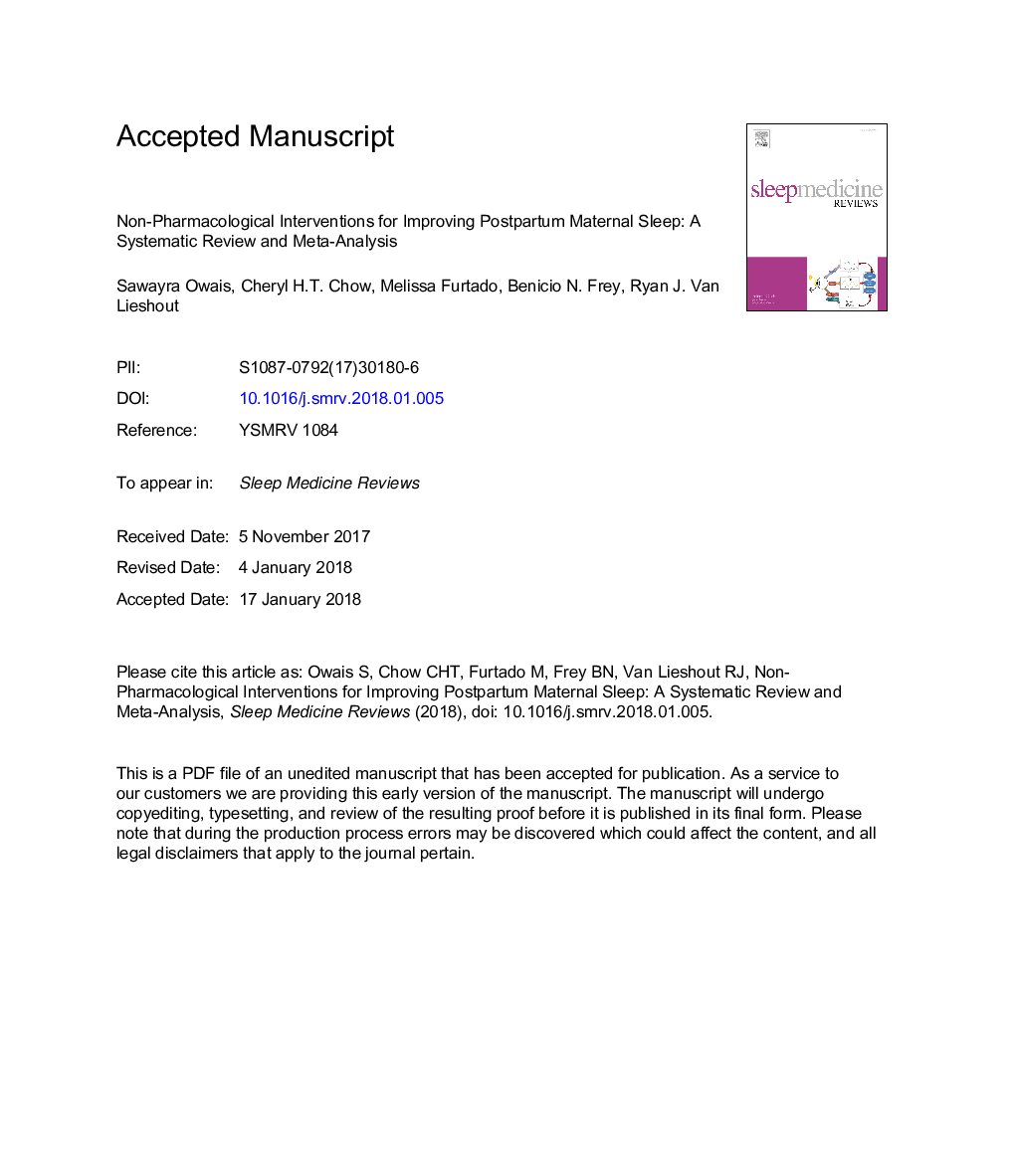| Article ID | Journal | Published Year | Pages | File Type |
|---|---|---|---|---|
| 8963412 | Sleep Medicine Reviews | 2018 | 57 Pages |
Abstract
Evidence suggests that poor postpartum sleep quality is a risk factor for the development of postpartum depression. As such, non-pharmacological interventions have been developed to help improve sleep in the postpartum period. The primary aims of this systematic review and meta-analysis were to determine if non-pharmacological interventions improved maternal sleep and to compare the effectiveness of different intervention types. Secondary aims included examining effects on maternal mood and infant sleep. We searched MEDLINE, EMBASE, CINAHL, PsycINFO, and Web of Science from their inceptions to September 2017 and found 15 eligible studies. Non-pharmacological sleep interventions were found to improve subjective reports of maternal sleep (Cohen's d = â0.54, 95%CI = â0.88 to â0.19). Massage (Cohen's d = â1.07 95%CI = â1.34 to â0.79) and exercise (Cohen's d = â0.82 95%CI = â1.28 to â0.37) interventions had the largest impact on maternal sleep quality. Positive effects on nocturnal infant sleep were found for interventions overall (Cohen's d = â0.27 95%CI = â0.52 to â0.02) but not for maternal depression (Cohen's d = â0.08 95%CI = â0.28 to 0.12). Despite evidence suggesting improvements in subjective maternal sleep, more research must be conducted on the durability of effects of non-pharmacological interventions using objective measures of sleep quality.
Keywords
PSQIGSDSMCIDMaternal sleepPRISMANOSISIPreferred Reporting Items for Systematic Reviews and Meta-AnalysesArachidonic aciddocosahexaenoic acidPostpartumDHAInsomnia severity indexPittsburgh sleep quality indexNon-pharmacologicalMeta-analysis Of Observational Studies in EpidemiologyNewcastle–Ottawa ScaleMoose
Related Topics
Life Sciences
Neuroscience
Neurology
Authors
Sawayra Owais, Cheryl H.T. Chow, Melissa Furtado, Benicio N. Frey, Ryan J. Van Lieshout,
